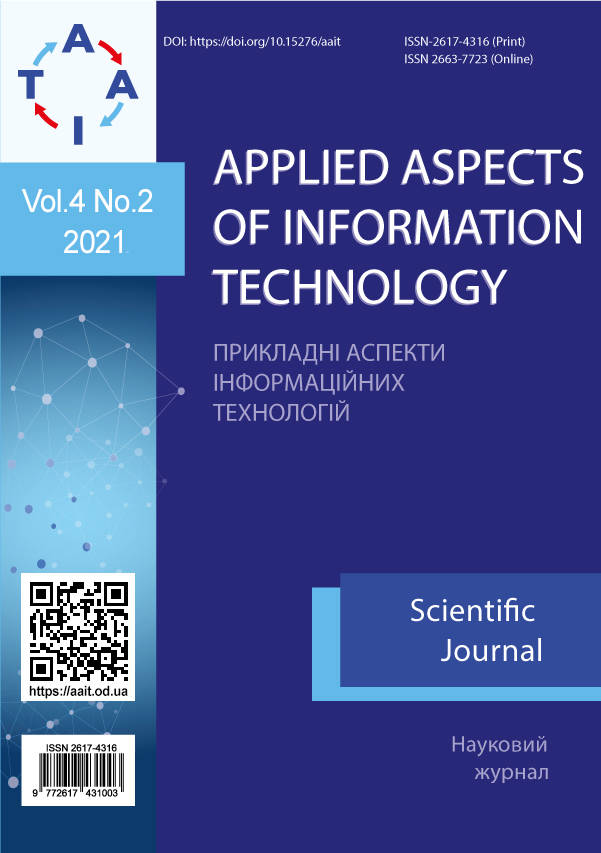Distributed deep learning framework for smart building transducer network
Main Article Content
Abstract
This work is devoted to the development of a distributed framework based on deep learning for processing data from various sensors that are generated by transducer networks that are used in the field of smart buildings. The proposed framework allows you to process data that comes from sensors of various types to solve classification and regression problems. The framework architecture consists of several subnets: particular convolutional net that handle input from the same type of sensors, a single convolutional fusion net that processes multiple outputs of particular convolutional nets. Further, the result of a single convolutional fusion net is fed to the input of a recurrent net, which allows extracting meaningful features from time sequences. The result of the recurrent net operation is fed to the output layer, which generates the framework output based on the type of problem being solved. For the experimental evaluation of the developed framework, two tasks were taken: the task of recognizing human actions and the task of identifying a person by movement. The dataset contained data from two sensors (accelerometer and gyroscope), which were collected from 9 users who performed 6 actions. A mobile device was used as the hardware platforms, as well as the Edison Compute Module hardware device. To compare the results of the work, variations of the proposed framework with different architectures were used, as well as third-party approaches based on various methods of machine learning, including support machines of vectors, a random forest, limited Boltzmann machines, and so on. As a result, the proposed framework, on average, surpassed other algorithms by about 8% in three metrics in the task of recognizing human actions and turned out to be about 13% more efficient in the task of identifying a person by movement. We also measured the power consumption and operating time of the proposed framework and its analogues. It was found that the proposed framework consumes a moderate amount of energy, and the operating time can be estimated as acceptable.



